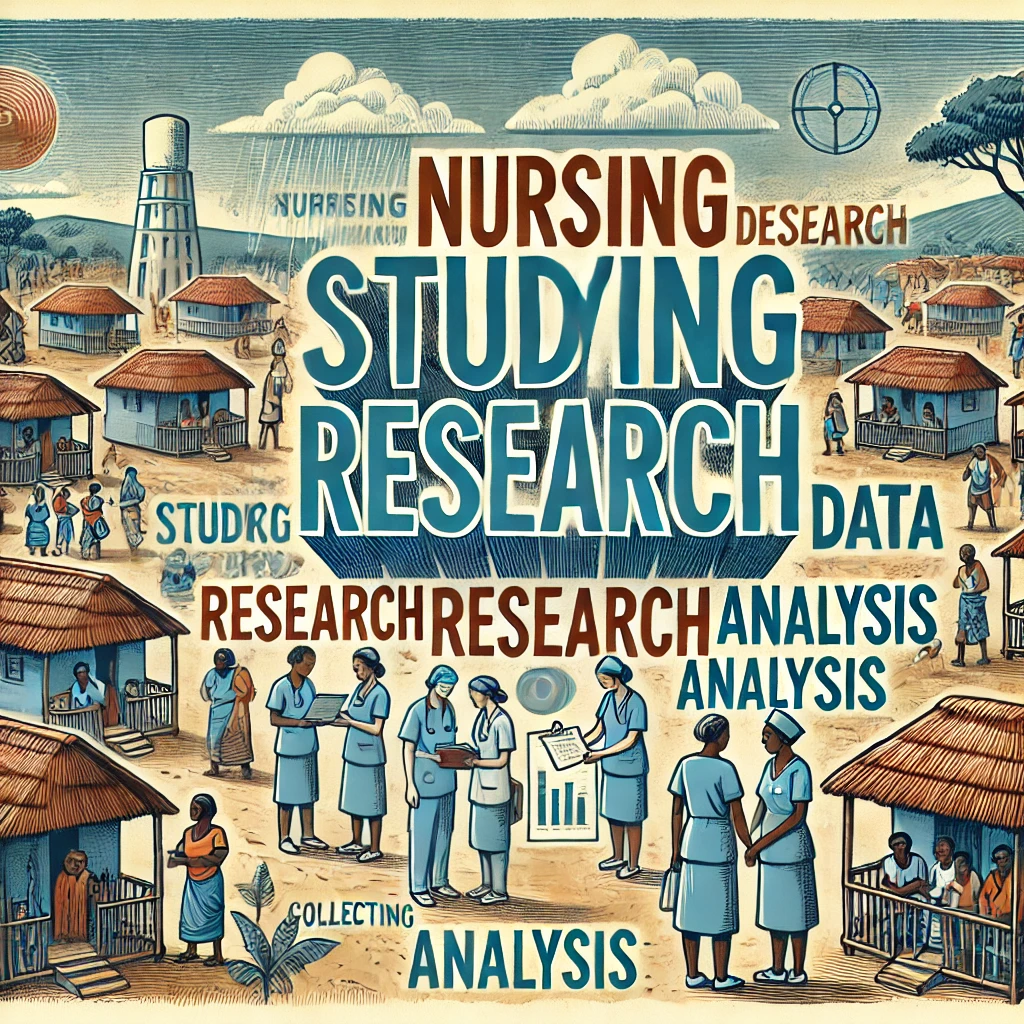Introduction to Nursing Research
Subtopic:
Purpose of studying Research

I. Introduction to Research Purpose
Research is a systematic inquiry aimed at discovering, interpreting, and revising knowledge. The purpose of a research study defines its why:
A. Primary Goal: Address gaps in existing knowledge, solve problems, test theories, or inform decision-making.
B. Scope: Varies across disciplines (e.g., scientific, social, humanities) but shares core objectives like advancing understanding or improving practices.
C. Impact: Drives innovation, policy changes, and societal progress.
II. Key Purposes of Research
A. Expanding Knowledge
Filling Knowledge Gaps
i. Identifies unexplored areas in a field (e.g., “How does climate change affect migratory patterns of Arctic birds?”). ii. Example: Medical research on rare diseases with limited existing data.Replicating and Validating Findings
i. Confirms or challenges prior studies to ensure reliability (e.g., replicating psychology experiments to test reproducibility).Interdisciplinary Insights
i. Merges fields (e.g., bioinformatics combining biology and computer science) to generate novel perspectives.
B. Solving Practical Problems
Applied Research
i. Addresses real-world issues (e.g., engineering research to improve renewable energy storage).Societal Challenges
i. Tackles poverty, healthcare disparities, or environmental degradation (e.g., studies on vaccine efficacy during pandemics).Technological Advancement
i. Develops tools, software, or systems (e.g., AI algorithms for early disease diagnosis).
C. Testing or Developing Theories
Theoretical Research
i. Validates or refutes hypotheses (e.g., testing Einstein’s theory of relativity through astrophysical observations).Conceptual Frameworks
i. Creates models to explain phenomena (e.g., economic theories predicting market behavior).
D. Informing Policy and Decision-Making
Evidence-Based Policy
i. Provides data to governments/NGOs (e.g., research on minimum wage impacts guiding labor laws).Program Evaluation
i. Assesses effectiveness of interventions (e.g., evaluating educational reforms on student outcomes).
III. Educational and Intellectual Growth
Skill Development
i. Enhances critical thinking, data analysis, and problem-solving abilities.Academic Contribution
i. Publishes findings in journals to share knowledge globally.Training Future Researchers
i. Mentors students in methodologies and ethical practices.
IV. Methodological Innovation
Advancing Research Techniques
i. Develops new tools (e.g., CRISPR for genetic editing) or statistical models.Improving Data Collection
i. Refines surveys, experiments, or fieldwork protocols.
V. Ethical and Societal Responsibilities
Promoting Integrity
i. Ensures honesty in data collection, analysis, and reporting (e.g., avoiding plagiarism or data manipulation).Social Justice
i. Highlights marginalized voices (e.g., ethnographic studies on indigenous communities).Sustainability
i. Aligns research with UN Sustainable Development Goals (e.g., clean energy solutions).
VI. Personal and Professional Motivations
Intellectual Curiosity
i. Driven by the desire to explore unanswered questions.Career Advancement
i. Supports academic promotions, grants, or industry recognition.Legacy
i. Contributes to a field’s long-term growth (e.g., Marie Curie’s work on radioactivity).
VII. Challenges in Defining Research Purpose
Scope Creep
i. Overambitious goals may dilute focus.Funding Pressures
i. Balancing sponsor priorities with pure academic inquiry.Bias
i. Avoiding unconscious preferences influencing hypothesis formation.
IX. Examples & Case Studies
A. Knowledge Expansion: Hubble Telescope’s role in astrophysics.
B. Policy Impact: Epidemiological research shaping COVID-19 lockdown policies.
C. Ethical Research: Tuskegee Syphilis Study’s ethical failures leading to modern IRB protocols.
X. Key Terms
A. Hypothesis: A testable prediction.
B. Peer Review: Evaluation by experts to ensure validity.
C. Empirical Evidence: Data collected through observation/experimentation.
Final Note: Research is iterative—each study builds on past work and inspires future inquiries.
Purpose of Studying Research in Nursing
I. Enhancing Patient Care
A. Evidence-Based Practice: Research helps nurses apply the best available evidence to improve patient outcomes.
B. Clinical Decision-Making: Provides data to support informed and effective care strategies.
C. Patient Safety: Identifies best practices to minimize errors and enhance patient well-being.
II. Advancing Nursing Knowledge
A. Theory Development: Contributes to the foundation of nursing science.
B. Innovative Techniques: Leads to new treatment methods and healthcare innovations.
C. Interdisciplinary Collaboration: Promotes teamwork across healthcare professions.
III. Improving Healthcare Systems
A. Policy Influence: Shapes healthcare regulations and nursing guidelines.
B. Quality Improvement: Enhances service delivery and hospital operations.
C. Resource Optimization: Ensures efficient use of medical supplies and personnel.
IV. Professional Growth and Development
A. Career Advancement: Expands opportunities in clinical and academic settings.
B. Leadership Development: Prepares nurses for administrative and research roles.
C. Lifelong Learning: Encourages continuous education and skill enhancement.
V. Addressing Public Health Challenges
A. Disease Prevention: Research supports vaccination programs and health initiatives.
B. Community Health: Focuses on underserved populations and global health issues.
C. Mental Health Awareness: Promotes strategies for psychological well-being in patients and caregivers.
Get in Touch
(+256) 790 036 252
(+256) 748 324 644
Info@nursesonlinediscussion.com
Kampala ,Uganda
© 2025 Nurses online discussion. All Rights Reserved Design & Developed by Opensigma.co

